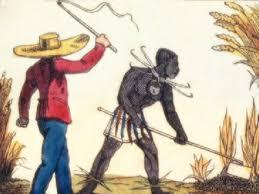(This appeared recently as a commentary in the Albany Times-Union)

The “1619 Project” aims to highlight a key aspect of history — 1619 being when slavery arrived here — that is, at America’s very beginnings. As if born in sin. And “Critical Race Theory” puts race at the center of everything.
Both are politicized targets for the right; and both, perhaps typically for our febrile times, do go overboard. For example, 1619ers say 1776 was really about preserving slavery, supposedly against British abolitionism — which in fact hardly even existed yet.
That said, slavery and race do figure hugely in America’s story. Surely schoolkids need to learn about this. Not to make them feel bad, but so they’ll understand their world.
And while slavery was a horror, I’m proud of my country for the ideals that have propelled progress. Election of a black president seemingly relegated racism to America’s dark corners. But then a white backlash jelled, with a newfound anxiety over loss of caste dominance.

Trump could never have been elected absent a Black predecessor, and that underlying race factor continues to bedevil our politics. Many of his supporters won’t admit it to themselves, bristling at the “racist” label; but nobody would have stormed the Capitol on January 6 for the sake of economic concerns alone.
Jeannette Wilkerson’s 2020 book Caste quotes historian Taylor Branch querying how many Americans, given a choice between democracy and whiteness, would choose the latter? And she wonders whether the country will adhere to majority rule if the majority looks different. January 6 was a partial answer.
All this is a continuing legacy of slavery, definitive in America’s story.
I see history as full of contingency — nothing is ever inevitable. While many other societies had slavery, plenty never did. Ours was a peculiarity of Southern agriculture and its plantation system. Yet agriculture was successfully conducted on different models in numerous other places over millennia without slavery. Why then did it take hold here? Contingency factors that might have played out differently. Maybe importing those first slaves in 1619 did prove decisive.

And without our slavery history, today’s America would look very different. Whatever Black population we’d have would have arrived by normal immigration. True, some immigrant groups, like Irish and Jews, suffered discrimination, but it lessened as they assimilated. That could well have happened with Black immigrants.
Instead, Black Americans still earn less on average than Whites, their wealth a small fraction. Why didn’t they rise as far as immigrant groups? Because discrimination loomed much larger. The South’s sharecropper system, which dominated for most years since the Civil War, was engineered to keep Blacks down. Educational opportunities were far more limited, and still are. Housing segregation. Disproportionate incarceration. Et cetera. Blacks have been racially disadvantaged in uncountable ways.

And why, exactly, have they in particular suffered such severe and long-lasting discrimination? The answer is again rooted in slavery. It necessitated belief in Black racial inferiority. Slaveholders weren’t fooled by their propaganda painting the system as benevolent. They knew its brutality. And they could stomach this, shirking guilt for crimes against humanity, only by convincing themselves the victims weren’t really human. Not as human as them, anyway.
There was, indeed, a vast effort to prove it scientifically. Many otherwise upstanding men of science spiraled down this rat hole, torturing evidence. Only later did proper science refute all notions of racial superiority or inferiority.
Yet they’re still a deeply entrenched socio-cultural legacy. Depicting Blacks as lazy, louche, lawless, etc., helped justify enslavement, and persists. Ill-treatment and discrimination make people appear degraded; living in poor conditions causes social pathologies. Treat people like dirt and they’ll look dirty, putting the negative stereotypes on a feedback loop. While whites fancy themselves superior. Of course such racialism is a familiar syndrome worldwide. But our slavery history surely gave it a uniquely powerful impetus. Still casting an ugly shadow upon America.

Lincoln spoke of “a new birth of freedom.” But the story isn’t over. Slavery may have planted a time bomb of race antagonism that will yet blow up our democracy.
